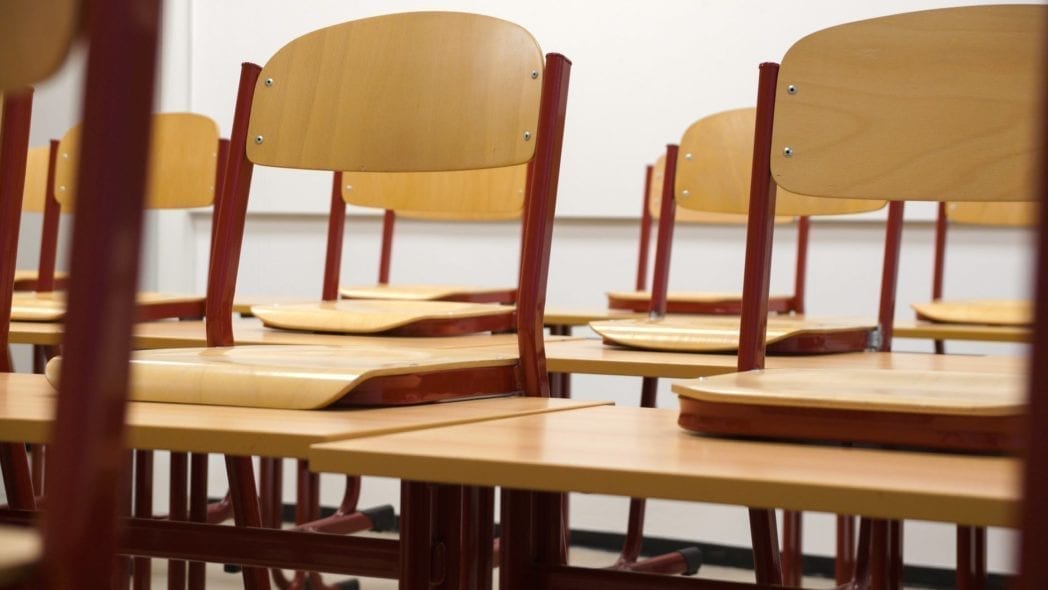Children and society’s future are at stake when setting education policy. That makes it among the most intense political issues, but there’s no reason disagreements should rise to the level of involving the criminal justice system.

A recent column in Harvard Magazine highlighted Harvard law professor Elizabeth Bartholet’s support for a “presumptive ban” on homeschooling. That is very close to presuming guilt before innocence, and it certainly risks tearing families apart as we all know how bans are enforced.
Bartholet might be on the extreme end of the anti-homeschooling position, but she isn’t alone. Did I mention she’s a Harvard law professor?
For those in favor or neutral on the question of homeschooling, she might come off ignorant, cruel, or crazy. It’s fair to argue how such a policy would be those things, but this is obviously a well-educated woman who cares about what she calls a child’s right to “meaningful education.”
To begin a fruitful discussion on childhood education, one fundamental question needs to be answered.
Who is principally responsible for the child? The parents brought him into the world, so it starts with them. Any other trustee-guardianship claim on the child would have to go through them first, wouldn’t it?
According to Bartholet, parents have “very significant rights to raise their children with the beliefs and religious convictions that the parents hold.”
Sounds like there’s a but in there somewhere.
“The issue is, do we think that parents should have 24/7, essentially authoritarian control over their children from ages zero to 18? I think that’s dangerous,” Bartholet adds. “I think it’s always dangerous to put powerful people in charge of the powerless, and to give the powerful ones total authority.”
Total authority is a dangerous concept indeed. Thankfully, parents don’t have total authority over their children, or else there would be no laws against neglect, abuse, etc. The libertarian position makes it clear that no person has total authority over another, and children are no exception.
Unfortunately, it is Bartholet’s solution that requires total authority in the government over parents and their children in the final analysis. Shared or delegated authority would mean a voluntary association with the parents, but the state does not work that way.
Under Bartholet’s proposal of a presumptive ban, parents would have to seek state permission to exercise responsibility for their child’s education. What this amounts to is an application to lease government property, in this case, the child.
If the parents were denied the privilege but chose to ignore the government’s wishes, the child would be forcefully placed in a school or dealt with however the government deemed appropriate. It need not be theorized what would happen to the parents.
What should be learned? Academics, social values, sports, religion, self-realization? Who should teach it, and how?
For nearly a century, the trend in the current education system has been to centralize authority on these matters.
Kevin Ryan, founder and director emeritus of the Center for Character and Social Responsibility at Boston University, notes that in 1932, there were some 128,000 school districts in America. Today, there’s about 13,500, effectively a consolidation of 90 percent of districts in about as many years.
Parallel to that pattern has been the ceding of power from local school boards to state and federal boards. These producers of the curriculum are detached from their consumers, the parents, and children, more and more. At the same time, administrative jobs and costs have exploded.
One local school board member in Nashville, Tennessee, recently revealed their priorities after Covid-19 lockdowns forced steep budget cuts.
“We have to prioritize where those funds go,” Amy Frogge said. “We can choose to open charter seats or we can choose to pay our teachers and our staff members.”
Needless to say, some 3,000 new charter school seats were denied in favor of sending checks to teachers and administrators.
With no incentive to lower pay to afford more teachers, it’s no wonder classroom sizes are still so big! That brings up another curiosity. If it’s good that classroom sizes shrink so that individual students can get one-on-one time with their instructor, doesn’t that make another good case for homeschooling or another custom alternative?
The U.S. Department of Education’s bureaucracy has grown substantially over its 40-year reign. The U.S. spends more per student than most of the rest of the world, yet it falls behind in math and science.
The American education system didn’t used to be this way. Its failure makes clear that the status quo can’t be relied upon to succeed in the long term.
An argument could easily be made to scrap the whole compulsory public school model. Abolish all government schools, and go back to what raised America’s founding generation to such high literacy that the Federalist Papers were considered easy reading by the masses.
How about a reasonable compromise at least? Create a level playing field between the public school system and the alternatives like homeschooling. Make the latter just as accessible by respecting parental rights and free enterprise.
This would mean more competition, but it wouldn’t be winner-take-all. Under political systems like centrally planned education, if a board votes 50 percent plus one for a curriculum, the other curricula are no longer available at all.
At least under free enterprise, the minority vote would still have options. Just as there are fewer consumers of some movies, cereals, and clothing, there would be more to choose from in learning and teaching services.
Hopefully, a silver lining in this period of COVID-19 lockdowns is that parents, teachers, and officials come to realize the value of freedom in determining the best education for children.

























